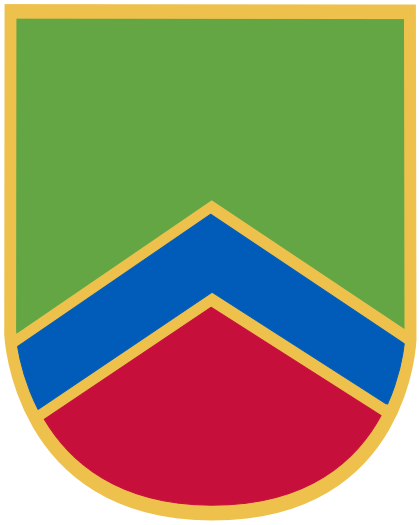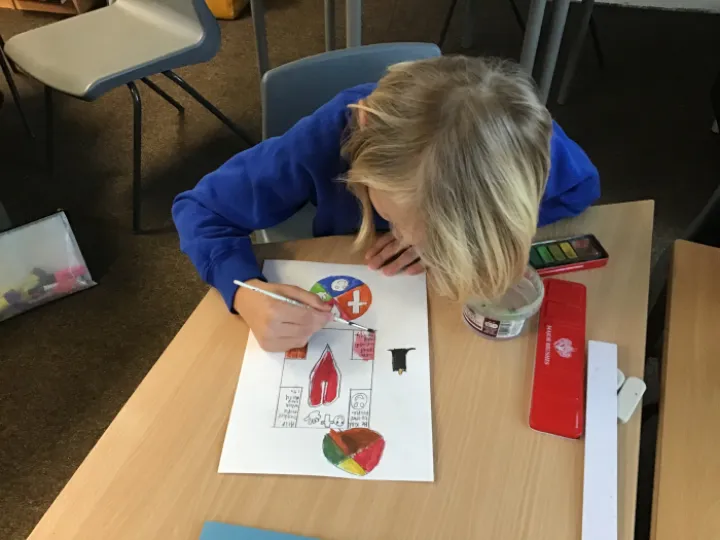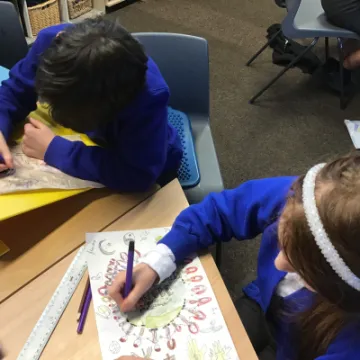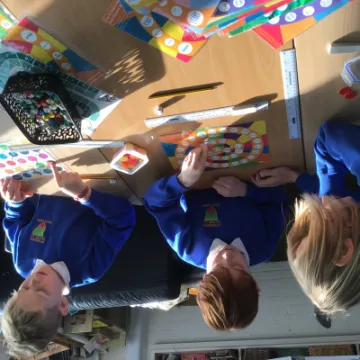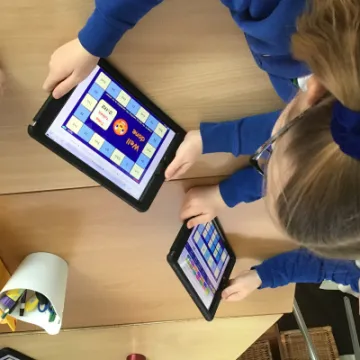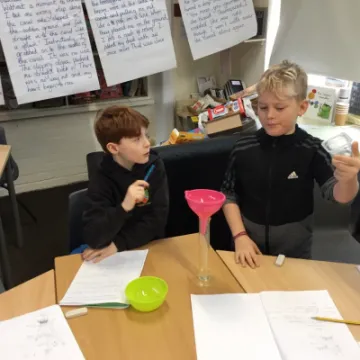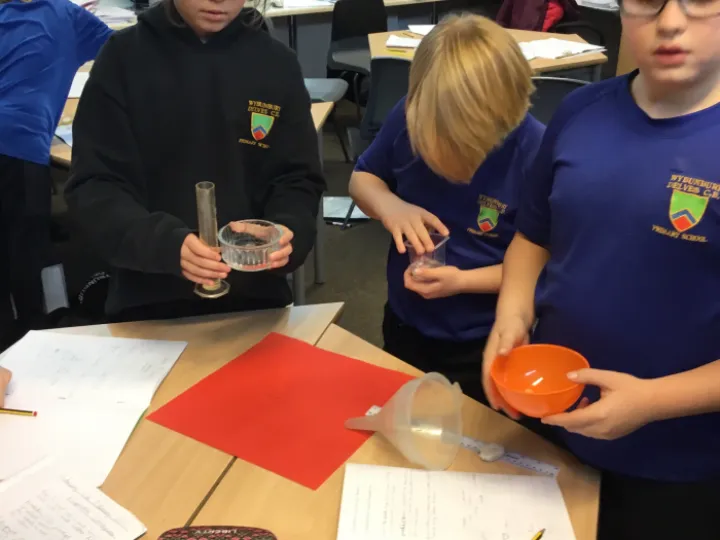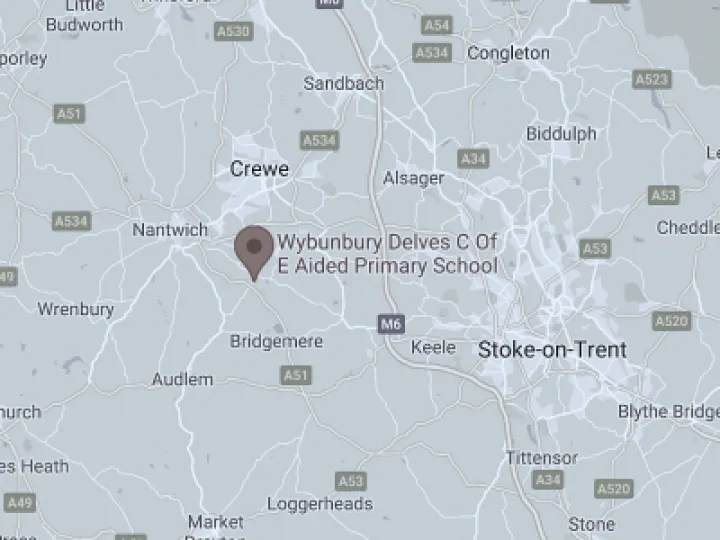Year 4 News 04.02.22
During our English lessons this week, we edited the work from our shared write following the guidance and comments in their marking. We then planned our own hot writes. The children were asked to write warning stories in the location of train tracks. In the following lesson, the children wrote their stories. We were focusing on our key targets: using speech, describing a setting and following the structure of a warning story. Once we had completed these, we were given a checklist to ensure we had showcased all of our skills. In the next couple of lessons, we starts our cold write for our next unit – poetry. We then began to learn our model text – The Castle the King Built. The children completed a reflection of the poem after hearing it for the first time.
During our Maths lessons this week, the children have continued to improve their knowledge of multiplication and division. We started the focus by focusing on developing our times table knowledge. The children were given a carousel of activities to access throughout the lesson. This involved: practising on TT rockstars, completing timetables dominoes, playing timestable board games and learning rules and ways to remember. In our other lessons this week, we have learnt consolidated our knowledge of how to multiply by a one digit number using column multiplication. We have also applied this skills to problem solving activities.In our other lessons this week, we have started to learn how to use part whole models to help us to divide. We started by dividing two digit numbers by one digit numbers. In our final lesson this week, the children completed an arithmetic quiz. We discussed and explored the methods we could use.
In our reading lessons this week, we have been exploring non fiction texts based on whales. We have explored texts which have involved answering questions about the relationships between whales and people. We have continued to develop our skimming and scanning technique. We have also spent time discussing and understanding new vocabulary. At the end of our lessons, we completed a unit check to assess our understanding of the text we had explored.
In our History lesson this week, we explored how to answer the question 'We all Medieval Castles Motte and Bailey?' We started our lesson by answering a few a Norman true and false questions. We then recapped the features and reasons for Motte and Bailey castles and discussed why we thought these may not have been a permanent solution for the Normans. The main reasons for this were that they were easily set on fire and would eventually rot. Instead the Normans built stone keeps. We learnt why these were built and learnt about the advantages and disadvantages for this. The children completed an activity around this. The children then sent their spies to find more missing pieces of information about the advantages and disadvantages.
In our French lessons this week, we have finished learning how to talk about our pets in French. We learnt how to pronounce everything from a cat, to a rabbit, to a parrot and also a snake! To consolidate our understanding, we played a game of bingo. This involved us listening to the word in French and then ticking the animals off our bingo board. It was a fantastic game!
This week we have been celebrating interfaith week. This weeks theme was based around the concept of the Golden Rule. This simply means the rule that all faiths and religion live by and they are all linked together by one key theme: treat others and you yourself would like to be treated. In year 4, we reflected on how this could look in the world. We imagined what it would be like if everyone followed this rule. We talked about how we could follow this rule in school. The children then created their own piece of art work inspired by this concept. Children were invited to draw and create anything which came to their mind. We looked at the phrasing of the rule in different religions and also considered which one resonated with us the most.
Our next Science investigation was all about which container would be the best for a bird water dish. Last week we filled each container with 50ml and then left the three dishes on the window sill. We were surprised to find out how much water had evaporated, sometimes as much as 35ml. This gave us an opportunity to think about the process of evaporation. Using other everyday examples, we drew diagrams which helped to deepen our understanding of this process.
In our computing lesson this week, we have used code studio to develop our skills of loops. In this lesson, we learnt how to use loops to collect items in a code.
In our Geography lesson, we have consolidated our knowledge of 4 and 6 figure grid references. We recapped our knowledge of Os maps from last lesson and then explored some more symbols. The children were given grid maps and we discussed the importance of grid references. The children learnt how these help us to find specific locations on a map. Using their new knowledge, the children played a game of battleships. Later on our lesson, the children learnt about using grid references to plan a route. We were given a map and asked a set of questions about it. At the end of our lesson, we completed a mini grid reference quiz on the iPads.
This week in music, Mr Norbury delivered an really informative lesson on the bagpipes. He showed us clips of traditional music of bagpipers playing together. We learnt that bagpipes do not originate from Scotland, as most of us thought. History has traced the bagpipes back to Ancient Egypt, who passed them on to the Ancient Greeks, who then passed them on to the Romans. England then became the centre of the bagpiping world. Pop and rock music can include the bagpipes too. We watched two videos. Our favourite was definitely the rock song. From this new learning, we know that diversity and culture in music is really important. It can bring different nations together – different languages too. Next we played our brass instruments. This week we were counted in and had to play for 4 beats and rest for 4 beats. We found this slightly tricky as we had to count and play at the same time. Great work today team!
You each continue to wow me with your dedication to our learning!
Have a lovely week.
Miss Welch
Quick Links
Contact Us
office@wybunburydelves.co.uk
01270 841302
Wybunbury Delves
Bridge Street
Wybunbury
Nantwich
CW5 7NE
